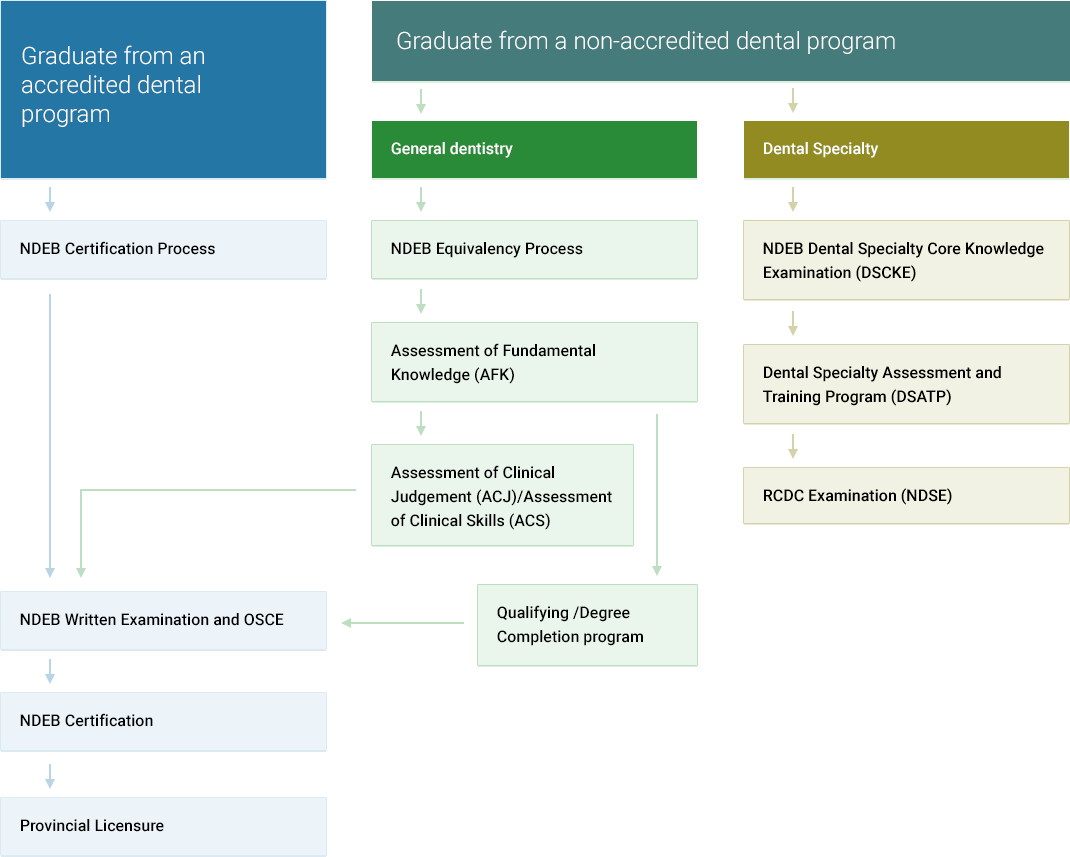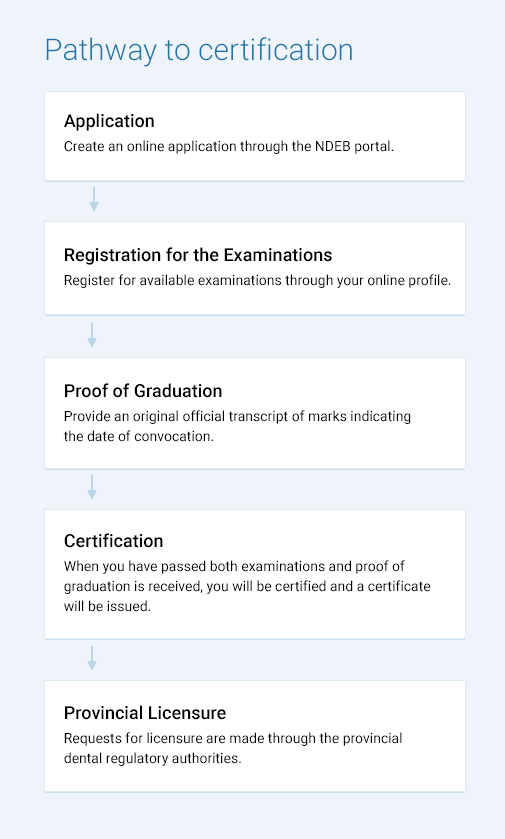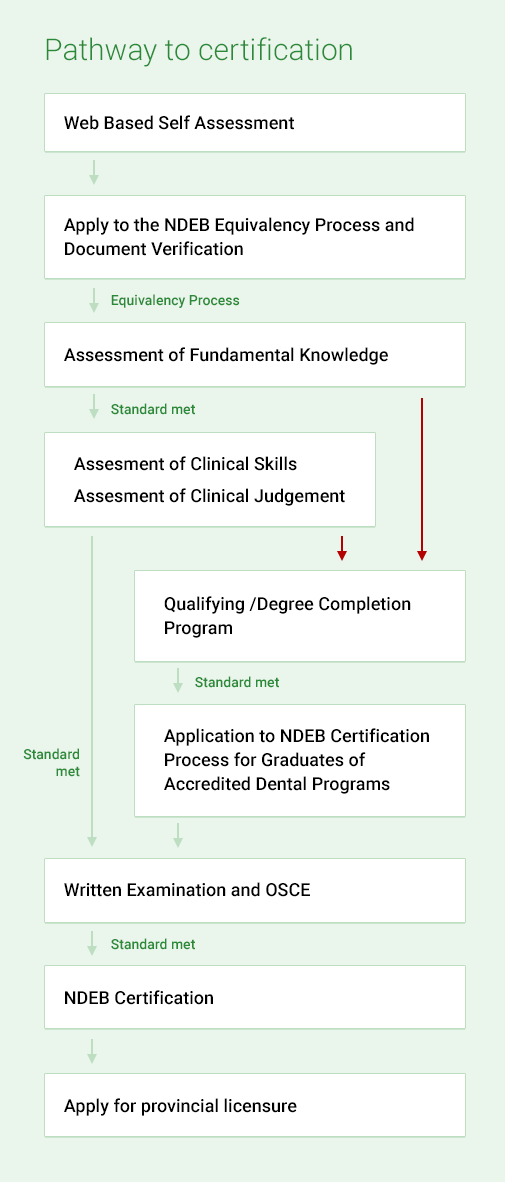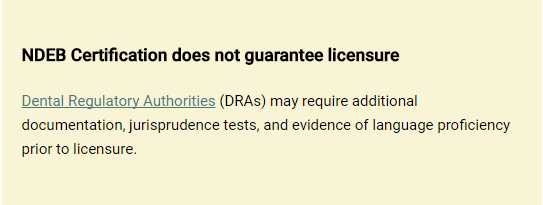During my Career Options after BDS article, I had promised to write a detailed guide on How to Work as a Dentist in Canada and How to work as a dentist in New Zealand for foreign accredited and non-accredited graduates.
Both are fabulous for dentists to earn and settle.
Both are beautiful, developed and economically stable countries that are fit for dentists from all over the world. In this post, I will give you a basic idea of how to work in Canada as a foreign dentist.
So why Canada, right?
Of all the dental job opportunities over the world, many of my readers are interested in migrating to Canada and settling there as a dentist. And they are not wrong about their decision and I have few reasons to say so.
The major reasons I would list are:
- Very good economic stability
- Dentists are the highest earners in Canada
- High payment capacity for Dental treatment
The sole purpose I am writing this guide on How to Work in Canada as a Foreign Dentist is to give you an idea about the procedures to follow to register as a dentist in Canada and work there.
With this guide, I aim to help you with procedures and steps to work in Canada as a dentist that will ultimately help you get you a bright dental career.
Now, let’s dive!
Dentistry is a regulated profession in Canada. To work as a licensed dentist in Canada, you must have a BDS/DDS/DMD degree and must be certified by the NDEB.
So, what is NDEB?
The full form of NDEB is the National Dental Examining Board of Canada. There are different ways to get a license to work as a dentist in Canada. I am sharing a flow chart of the pathways to get a dentist license below, which is provided on the NDEB official website.

As you can see in the picture above, there are two ways to get a license. One option is for Graduates from an Accredited Dental Program, and the second option is for Graduates from a non-accredited dental program. You will be provided licensure only after NDEB certification.
So now you might be thinking, which all are accredited dental programs, right? Below I had listed the accredited dental programs.
1. The Commission on Dental Accreditation of Canada
2. American Dental Association
3. Australian Dental Council for dentists graduated on or after March 31st, 2011
4. Dental Council of New Zealand for graduates on or after December 14th, 2011
5. Irish Dental Council for dentists graduated on or after December 5th, 2012
Now, I will tell you how to work in Canada as a licensed dentist if you are a graduate of the above accredited dental school.
Who are Graduates of Non-accredited Dental Programs?
Individuals who have an undergraduate dental degree from a university-based institution, which is not recognized by The Commission on Dental Accreditation of Canada, are Graduates of Non-accredited dental programs. If you are a non-accredited graduate, then you can skip the below section and read about procedures for Graduates of non-accredited dental schools.
Procedures for Dental Graduates of Accredited Dental Program
If you want to work in Canada as a dentist, all graduates from the accredited dental program must clear the NDEB or National Dental Examining Board of Canada’s certification process. The candidates must take two examinations, which are included in the certification process.
Just check the pathway of certification, which is given below, to get a brief idea of the procedures.

I will tell you about every single step of this procedure in detail. So continue reading, friends.
How to Apply for the certification process?
You can apply for the Certification Process of NDEB online. For applying, keep these ready with you:
- A recent photo in JPEG or PNG format.
- A valid credit card is used to make the payment of fees.
Apply to the NDEB Certification Process
Are you applying after 5 Years of your Graduation?
If you graduated from an accredited dental school more than 60 months ago? Then, you must download this Special Consideration Form. It’s a simple one-page form that you must fill out and attach some documents that are listed there.
You can get the dates and location of the certification process on their official website.
Certification Process Fees for Accredited Graduates
1. Application(Payable in one time and is non-refundable) – $500.00
2. Examination Fees
- Written Examination Fees – $900.00.
- Written Examination Outside of North America – $1100.00.
- Objective Structured Clinical Examination – $900.00.
- Objective Structured Clinical Examination outside of North America – $1100.00.
3. Withdrawal Fees
- Withdrawal before the last date of Registration – $250.00/Examination.
- Withdrawal after the last date of registration – $450.00/Examination.
- Withdrawal within 14 days of examination or failure to attend examination – Full Fee/Examination.
4. Other Services:
- Written Examination Manual Rescore – $150.00.
- OSCE Manual rescore – $400.00.
- Replacement Certificate – $75.00.
- Certification Proof – $30.00/Letter.
Check the latest fee in the Official Website
Procedures for Graduates of Non-Accredited Dental Programs
So, friends, let me start with the basics because I have received hundreds of emails regarding How to Work in Canada as a Dentist for Graduates of Non-Accredited Dental Programs. Before reading further, go through the flow chart given below.

There are two ways for graduates of non-accredited dental programs to work as licensed dentists in Canada. They are:
- Completion of accredited qualifying or degree completion program
- Completion of the NDEB Equivalency Process.
So, now, what is the Qualifying or Degree completion program?
These programs are offered by faculties of dentistry in Canada. These are custom-designed programs to make international graduates adapt to dentistry and dental practice in Canada. After completion of a Qualifying or Degree completion program, candidates are eligible to attend the NDEB Certification Process.
And What is the NDEB Equivalency Process?
The NDEB Equivalency process comprises three assessments. After the successful completion of the NDEB Equivalency Process, you are eligible to go for the NDEB certification process.
NDEB Equivalency Process
NDEB Equivalency Process Application:
The Application Process includes three steps:
Step One: Online Profile Creation:
The Graduates of Non-Accredited Dental Programs can apply through the NDEB Official Portal. While creating an online profile, do keep the following ready with you:
- Recent Photo in JPEG or PNG format.
- And a valid credit card or making the online payment.
You can go through the following documents given on the NDEB Official site by selecting below.
Step Two: Document Submission
After registering and creating an online profile, you must submit a few documents. The instructions for the Document Submission and Degree completion form will be available on the dashboard of your account.
Think you are not able to submit the required documents due to situations out of your control, then you may use the NDEB Alternative Document Submission Process.
Step Three: Document Verification
All the documents you have provided during the application will be sent for verification by NDEB. The verification process may take as long as 12 weeks.
The verification status of all your documents will be displayed on the dashboard of your online profile. When everything is verified, you will receive a mail confirming that your application is approved, and you will be able to register for Assessment of Fundamental Knowledge(AFK).
All the details you want to know will be updated in your dashboard.
Incomplete applications
Suppose the application you submitted lacks any documents for verification. In that case, you will be notified via email on what are the changes in that or what else to attach to the application.
If the application is Incomplete, then it will take an extra 12 weeks from the date they receive the correct documents. Please review the application you are going to submit by keeping the guidelines in mind.
List of Documents Required
Information about each document can be found in the Guidelines for Required Documents Section in your dashboard of the profile.
List of Documents which should be directly sent to NDEB by the University:
- Degree Completion Form Certificate
- Academic Records
List of documents that the applicant should submit:
- Government-issued Identity card with photo.
- Name change proof, if applicable.
- Translation of name change proof, if applicable.
- Dental Degree or Diploma.
- Translation of Dental Degree or Diploma.
- Translation of Academic Records.
- Internship completion certificate.
- Translation of Internship completion certificate.
Understand the Required Documents
NDEB looks for the following things when reviewing a notarized document or translated document by a certified translator.
Notarized:
- Photocopies that are notarized should have the original seal and signature of the Notary Public or Commission of Oaths.
- The degree and other original documents should be photocopied and must have the original seal and signature of the Notary Public or Commission of Oaths.
- The notary statement must clearly state that the document is a true copy of the original documents.
- The credentials of the individual must be clear on the Original seal, in English or French.
If you are not able to get documents notarized by a local Notary Public or Commission of oaths, whose credentials are in English or French, then you may get it notarized by an Officer of the Canadian Consulate or Canada Embassy.
Translation Details:
- A certified translator must do the translation and should bear the original seal and signature of the certified translator.
- The certified translator must give the original seal and signature on every page of the document.
- The original seal must have the credential of the certified translator in English or French.
Who is a certified translator?
A certified translator is an individual who a translation authority has evaluated, has a license issued by the government-recognized translation association or council, and has the right to do legal translations.
Online Web-Based Self-Assessment
The NDEB has developed an online self-assessment application for completing the Assessment Fundamental Knowledge.
This web-based questionnaire consists of 100 multiple-choice questions. After completion, you will be provided with a score and further guidelines.
Click here to begin Self Assessment
About the Assessment of Fundamental Knowledge(AFK)
Now, the approved participants can register for the Assessment of Fundamental Knowledge through their online profile.
Format and Content of AFK
Format
The test is conducted with two books with each book containing 150 multiple-choice questions. One book will be provided in a three-hour session, one in the morning and the other in the morning.
A candidate can take three attempts of Assessment of Fundamental Knowledge. If the candidate scores 75 or more in the test, he/she can register for the Assessment of Clinical Skills and Assessment of Clinical Skills.
Content or Syllabus
The information provided is just an approximate percentage of marks to be distributed, which is given in the official NDEB Website.
Biomedical Sciences – 20%
- Anatomy.
- Oral Microanatomy.
- Oral Embryology.
- Growth and Development.
- Physiology.
- Microbiology/Immunology.
- General Biochemistry/Cariology.
- Pathology/Medicine.
Applied Clinical Sciences – 80%
- Pharmacology – 13%.
- Orthodontics – 6%.
- Pediatric Dentistry – 7%.
- Geriatric Dentistry.
- Special-Needs Patient.
- Periodontics – 6%.
- Oral Facial Pain.
- Endodontics – 6%.
- Dental Emergencies.
- Oral Medicine/Oral Pathology – 6%.
- Radiology.
- Scientific Literature – 2%.
- Health Promotion/Population Health.
- Relationship between General/Oral Health.
- Local Anesthesia – 6%.
- Therapeutics.
- Medical Emergencies.
- Oral Surgery – 6%.
- Trauma.
- Medical Emergencies.
- Operative/Single Crown – 11%.
- FPD/Removable/Implants – 11%.
- Dental Anatomy/Occlusion.
- Prevention.
- Infection Control.
Assessment of Clinical Judgement
To sit for the Assessment of Clinical Judgement, you must have passed the Assessment of Fundamental Knowledge.
If you have passed AFK, then you can log in to your profile and register for Assessment of Clinical Judgement.
The format of Assessment of Clinical Judgement
ACJ is a multiple-choice assessment that consists of three books in a day. There will be a break between every book.
Content
Book 1 – The first two books are Books 1A and Books 1B, which are mainly about Diagnosis, Treatment Planning and Clinical Decision Making. This includes objective as well as subjective questions to find out your ability to diagnose and make clinical decisions. You will even be provided with case histories, dental charts, and photographs of different patients of different ages.
Book 2 – Radiographic Interpretation
Using radiographic prints, there will be questions to evaluate your knowledge of oral radiology and to make a radiographic diagnosis.
Assessment of Clinical Skills
A register for the Assessment of Clinical Skills, you must pass the Assessment of Fundamental Knowledge. If you have passed AFK, then you can log in to your online profile and register for your assessment.
The format of Assessment of Clinical Skills
The ACS is a two-day pre-planned clinical assessment during which you should perform a few dental procedures on dummies in a clinical setting.
On day 1 and Day 2 you will get:
- A typodont will be mounted on a manikin.
- A list of a few teeth for practice preparations.
- List of procedures with teeth number and surface.
- A participant communication form can be used to pass comments about evaluators.
To perform the Rubber Dam Requirement you will get a scheduled time.
Content or Syllabus
During the Clinical Skill Assessment, you have to perform the following:
- Amalgam Preparation – Class II.
- Composite Resin Preparation – Class III.
- Preparation of Full Metal Crown.
- Preparation of Metal-Ceramic (porcelain fused to metal) crown.
- Access preparation on the molar tooth – Endodontic.
- Composite resin restoration on Class II pre-prepared tooth.
- Composite resin restoration on Class IV pre-prepared tooth.
- Amalgam restoration of a pre-prepared tooth – Class II.
- Application of rubber dam.
- Provisional crown restoration for a pre-prepared metal-ceramic crown preparation on Day Two of the assessment. The original unprepared tooth will be in the typodont used on Day One of the assessment.
They will provide a pre-prepared tooth.
Candidates will also be evaluated on the basis of:
- Keeping Record.
- Material Hygiene and Infection Control.
If you pass the Assessment of Clinical Skills, you are then eligible to take the Final Qualifying Exam, which is the final step to working as a dentist in Canada.
All your hard work will work well after you clear this final exam. Be ready to become a licensed dentist in Canada.
NDEB’s Written Examination and OSCE
Every dental graduate, let it be accredited or non-accredited should give and pass the National Dental Examining Board of Canada’s written exams and Objective Structured Clinical Examination(OSCE) to work as a certified dentist in Canada.
About the Written Examination
After you apply for the NDEB certification process, you should first go for the written examination.
Syllabus and Format of Examination
The Written examination includes two books, each with 150 multiple-choice questions. You will get 150 minutes or 2.5 hours for each book. The exams will be conducted in the morning and afternoon on one day.
Below I had listed an approximate number of questions from each chapter. These are listed on the official website of NDEB.
Book 1 – Syllabus and Number of Questions
1. Promotion of Health.
2. Health and Population.
3. Health.
4. Relationships of Oral or General Health.
5. Record Keeping.
6. Scientific Literature.
7. Oral Medicine or Oral Pathology.
8. General Cariology or Biochemistry.
9. Oral Microanatomy.
10. Oral Embryology.
————————————————————————(50 Questions)
11. Anxious Patient.
12. Neglect and Abuse.
13. Occupational Hazards.
14. Periodontology.
15. Pharmacology.
16. Development and Growth.
17. Physiology.
————————————————————————-(50 Questions)
18. Oral Radiology.
19. Informed Consent.
20. Anatomy.
21. Prevention.
22. Immunology or Microbiology.
23. Medicine or Pathology.
————————————————————————–(50 Questions)
Total – 150 Questions
Book 2 – Syllabus and Number of Questions
1. Fixed Partial Denture.
2. Removable Partial Denture.
3. Dental Emergencies.
4. Medical Emergencies.
5. Jurisprudence and Ethics.
6. Trauma.
7. Paediatric Dentistry.
8. Implants.
—————————————————————————(50 Questions)
9. Orthodontics.
10. Endodontics.
11. Operative Dentistry.
12. Dental Anatomy.
13. Occlusion.
14. Special Needs Patient.
—————————————————————————(50 Questions)
15. Infection Control.
16. Local Anesthesia.
17. Therapeutics.
18. Geriatric Dentistry.
19. Oral Surgery.
20. Oral Facial Pain.
—————————————————————————(50 Questions)
Total Number of Questions – 150
About Objective Structured Clinical Examination(OSCE)
OSCE comprises two sessions of examination, one in the morning and the other in the afternoon of the same day. It is a station-type examination, and you have five minutes to answer at each station.
Two types of examinations will be there in OSCE. Each station will have two questions, and the candidate should go through the information(the case history, radiography, dental charts, photographs, casts, etc) given and answer the extended type questions.
Each extended type match question will have 15 options, and one or more can be the right answer. In some stations, you will have to prescribe medicines after reviewing the given information. You will get more details about the structure, format, and details in the below link.
Click Here for More Details about OSCE
Certification Exam Location
- Examination centers will be provided to you one year in advance of the date of the examination.
- In the March examination, centers will be provided at each of the Canadian Faculties of Dentistry.
- In May and November, the centers will be established, provided that there are at least 25 candidates at that location. If there are fewer than 25 candidates, then the center may be transferred to another location.
- Examinations will be conducted outside of Canada if there is a minimum of 50 candidates to appear for the examination.
Examination fee details
Application Fees
- Application( Non-refundable One-time fees) – $950.
Assessment Fees
- Assessment of Fundamental Knowledge(AFK) – $800.00.
- Assessment of Clinical Judgement (ACJ) – $1500.00.
- Assessment of Clinical Skills (ACS) – $5,500.00.
Withdrawal Fees
- Withdrawal before the registration deadline – AFK and ACJ – $250.00.
- Withdrawal before the registration deadline – ACS – $1500.00.
- Withdrawal after the registration deadline but before 15 days of Assessment – 50% of Assessment Fees.
- Withdrawal 14 days before or failure to attend exam – Full assessment fees.
Other Services
- Manual rescore – Assessment of Fundamental Knowledge – $150.00.
- Manual rescore – Assessment of Clinical Judgement – $400.00.
- Appeal – Assessment of Clinical Skills – $850.00.
- Marks Transcription – $30/letter.
The complete list of policies Regarding Fee Assessment
I am sharing a screenshot of a resource that I got from the official NDEB website. Please check with it too. 😛

Conclusion
This article on how to work in Canada as a dentist is a resource I got online and I would recommend this to my friends if they are very good at English and clinical skills.
I aimed to provide you with a simple guide on how to apply for a dentist license in Canada and help you have a great career in the future.
Friends, this information given here may change from time to time, and I would suggest you stay updated on the NDEB official website. I will try my best to update this page according to the changes in their procedures.
If you are from India, then you can also go through my detailed posts about government dental jobs in India.

Hi,
Its quite informative about the courses in India and abroad. I would like to know whether dentistry has scope in India or not.
I would like to know whether u can quire me regarding doing BDS/MDs abroad
What’s procedure to apply for BDS abroad post 12 the
Regards
Yes, BDS have a great in India if you move smartly. For pursuing dentistry abroad it is very costly.
Hi. I graduated my BDS in Tamil nadu in 2011. Now settled in south Africa. It is very hard to get registered here as general dental practioner because the board does not very often conduct exams for foreign dentist. If I need to join MDS I need to have Permanent residence status and complete the community service which is hard to get started. I am willing to go for multidisciplinary courses that does not require board exam Clarence. Please can you provide me information’s on non clinical career that I can opt through BDS.
Dear sir,
I am writing to thank you for your information,
I graduated from Tehran university as a dentist, is it accredited or non. Would you say how much time need to complete the above process (in years)?
Best Regards,
Fazel
very well explained and invaluable stuff. thank you
Thank you very much!